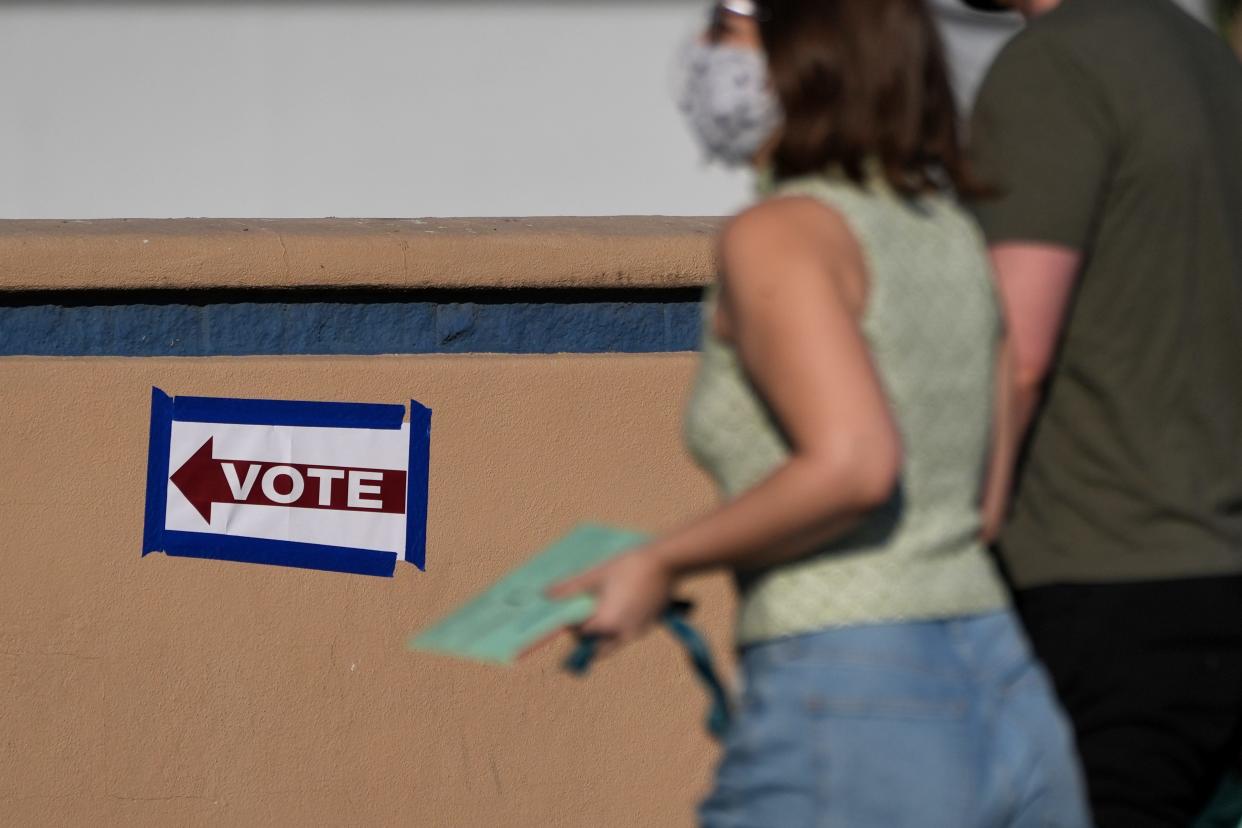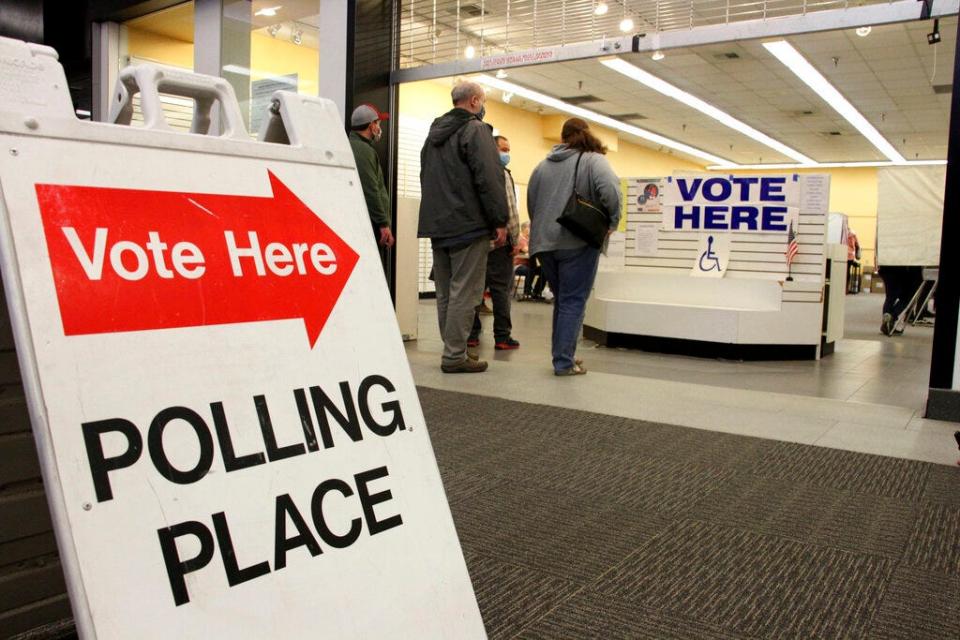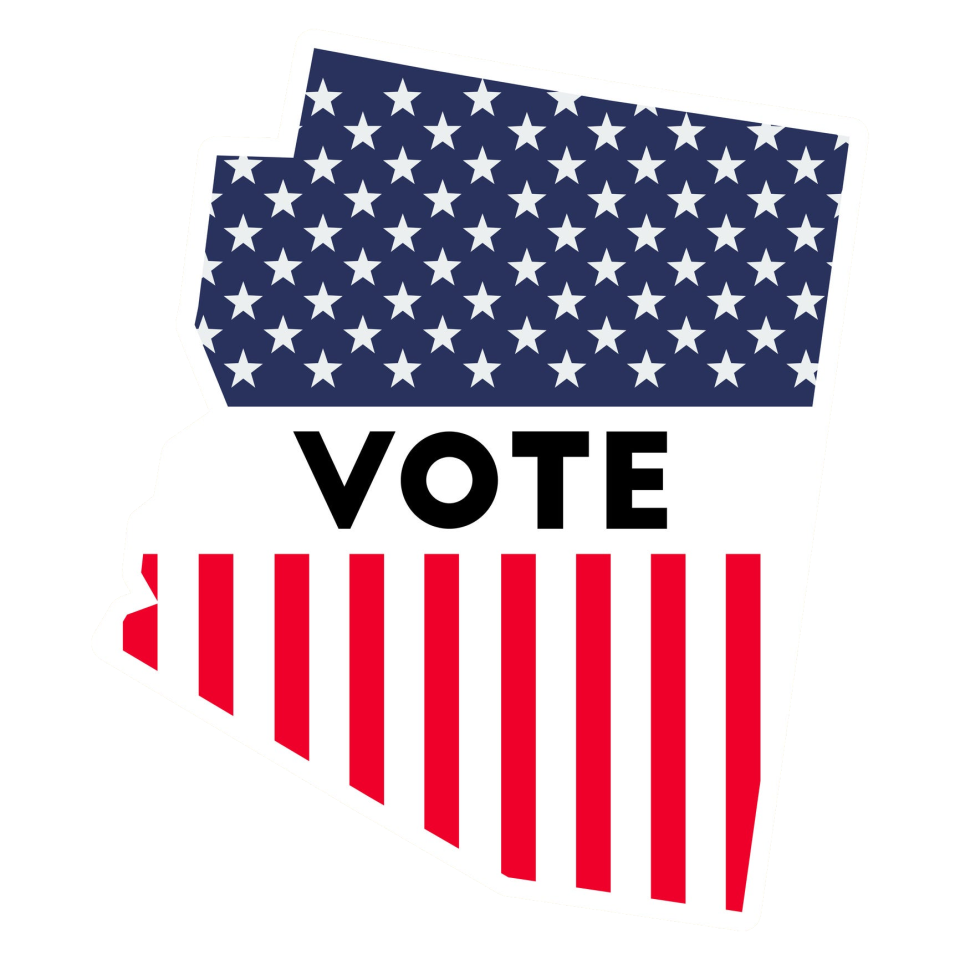Should Arizona create a lieutenant governor position? Voters will decide with Proposition 131

- Oops!Something went wrong.Please try again later.
Trying the same thing repeatedly and expecting a different result describes Arizona lawmakers' decadeslong effort to create a the position of lieutenant governor.
State legislators have introduced versions of the idea in at least 17 bills since 1982, with three of those bills putting the question on the ballot. Voters rejected two of the ballot measures in 1994 and 2010, but in November they'll get the chance to decide the fate of the third, Proposition 131.
Forty-five other states have the elected post, which typically serves as a first-in-line replacement should a governor vacate their position through resignation, death or other calamity.
In Arizona today, that next-in-line role falls to the secretary of state, and the Grand Canyon State has a history of secretaries of state ascending to the Governor's Office.
If Proposition 131 is approved, candidates for governor would pick a lieutenant no later than 60 days before the 2026 general election, and a single vote would elect both, similar to the national race for president and vice president.
To avoid complaints of bureaucratic bloat that helped sink the 1994 measure, the 2022 proposal requires the second-in-command to hold an existing job. The governor could appoint the person as chief of staff, the director of the state Department of Administration, or "any position" to which the governor can appoint someone by law.
The latter option would give the governor more than 100 positions on boards and commissions to choose from.
The intended goal is to guarantee the Governor's Office remains in the hands of the same political party, as the secretary of state and governor are not always politicians from the same party, currently.

The measure voters sunk in 2010 was another take on the same theme: It would have changed the title of secretary of the state to lieutenant governor, keeping that office's duties — including overseeing state elections — intact. Critics pointed out that a crucial drawback was the requirement for the governor and second-in-command to run on a joint ticket following the primary election, meaning independents — who don't have a primary or a party — would get excluded from the process.
Drafters of the latest measure got around that problem by ditching the party requirement, assuming that the gubernatorial candidate would pick someone from the same party.
Cross-party successions have happened twice in Arizona's history: After Republican Gov. Evan Mecham was impeached, Democrat Rose Mofford took office. And after Democrat Janet Napolitano left office in 2009 to join the Obama Administration, Republican Jan Brewer became governor.
Supporters make case for Prop. 131 to voters
"It's a good reform idea," said Sen. Sean Bowie, D-Phoenix, who co-sponsored two bills for the plan along with sponsor J.D. Mesnard, R-Chandler. "It makes more sense for continuity."
The two bills both passed the House and Senate with bipartisan votes. One bill is the ballot measure that would amend the state constitution to create the position, and the other bill dictates how the job would work.
Bowie and Mesnard said they believe it's an idea whose time has finally come, and that the new version is superior to all past iterations.
"It seems very unhealthy to have the person waiting in the wings (for the governor's seat) be an arch-rival or something," Mesnard said.
'We're going to hang you': Man charged in threat against Arizona election officials
Besides making for smoother transitions, creating the lieutenant governor position would relieve voters of the question of whether the person they select for secretary of state would also make a decent choice for governor, since it could come down to that.
Voters may believe that 2022 secretary of state competitors Democrat Adrian Fontes or Republican Mark Finchem would do fine at that job, but when contemplating that one or the other could become governor, Arizonans might decide "they gotta rethink this," Mesnard said.
An elected lawmaker since 2011, Mesnard said he's brought up the plan for the last several years but previously halted it when the process grew too partisan.
"Since then, a lot more Democrats are starting to buy into the idea," he said.
While that's true, Republicans were more likely to support the idea over the years, especially when a Democrat served as secretary of state. Bowie's support puts him on the same side as Kelli Ward, the divisive chair of the Arizona Republican Party who wrote a supporting argument for Proposition 131 in the Secretary of State's Office ballot measure guide.
"Certainly we didn't expect that," Bowie said of Ward's blurb.
Besides Ward and Mesnard, the League of Women Voters of Arizona also wrote a supporting argument.

Election guide: November 2022
City races | School boards | State | Governor
| Ballot measures | Federal races | How to vote
Opponents of Prop. 131 criticize 'cronyism'
No one penned an "against" argument for the measure before the July 6 entry deadline. But 439 people registered in opposition to the bill on the Legislature's website, compared to only 24 who logged their support.
Melinda Iyer, co-founder and policy advisor for Civic Engagement Beyond Voting, said the nonprofit voting-rights group steered many of the naysayers to the Legislature. The group encourages a "no" vote on the ballot measure, criticizing it in an online guide as enabling "cronyism and corruption."
"That’s truly alarming. A chief of staff is an unelected appointee, not a politician. That person wields an immense amount of power behind the scenes and is ultimately accountable to no one but the governor. This setup could permit an appalling amount of cronyism and shady dealing," it states.
If a governor gets replaced by someone of a different party, that's not such a bad thing, Iyer said.
"It ensures a fresh perspective," she said, adding that "if the governor is Republican and the secretary of state is a Democrat, it's because Arizonans wanted it this way."
Running the possible successor in a joint ticket with the governor is "like bundled cable," she said. "Do you want all that other stuff?"
Both candidates for Arizona secretary of state, Democrat Adrian Fontes and Republican Mark Finchem, oppose the ballot measure in an unusual show of agreement. Both men say creating a lieutenant governor position would waste taxpayer dollars.
Reach the reporter at rstern@arizonarepublic.com or 480-276-3237. Follow him on Twitter @raystern.
Subscribe to azcentral.com today.
This article originally appeared on Arizona Republic: Arizona Prop. 131: Should state have new lieutenant governor position?
